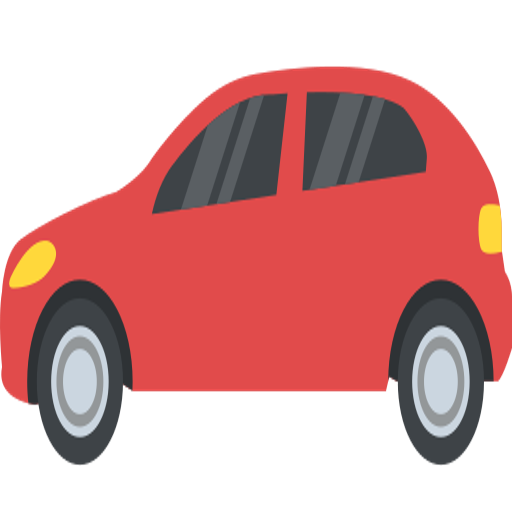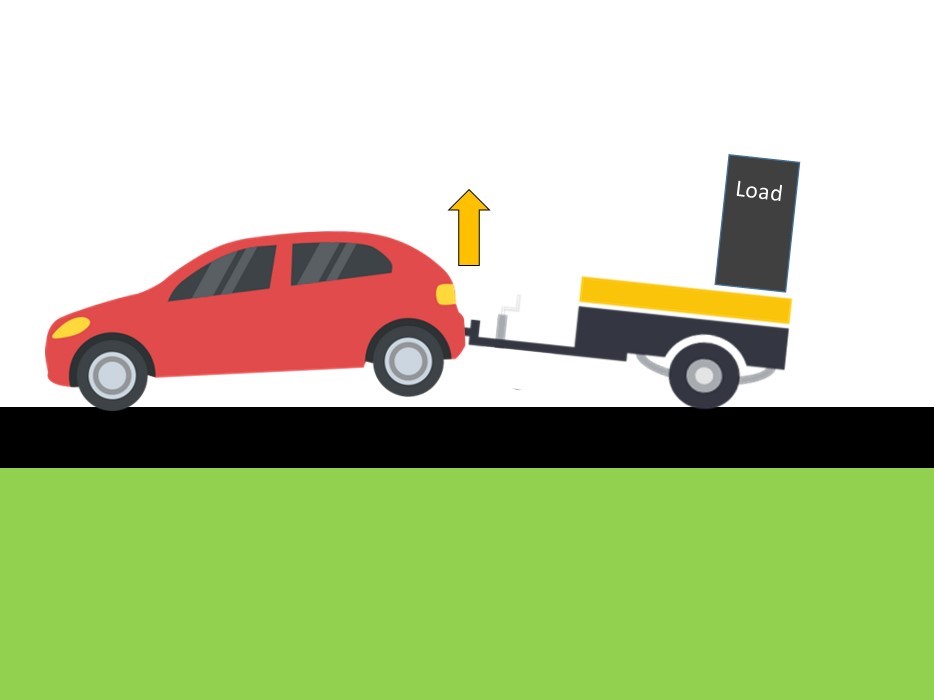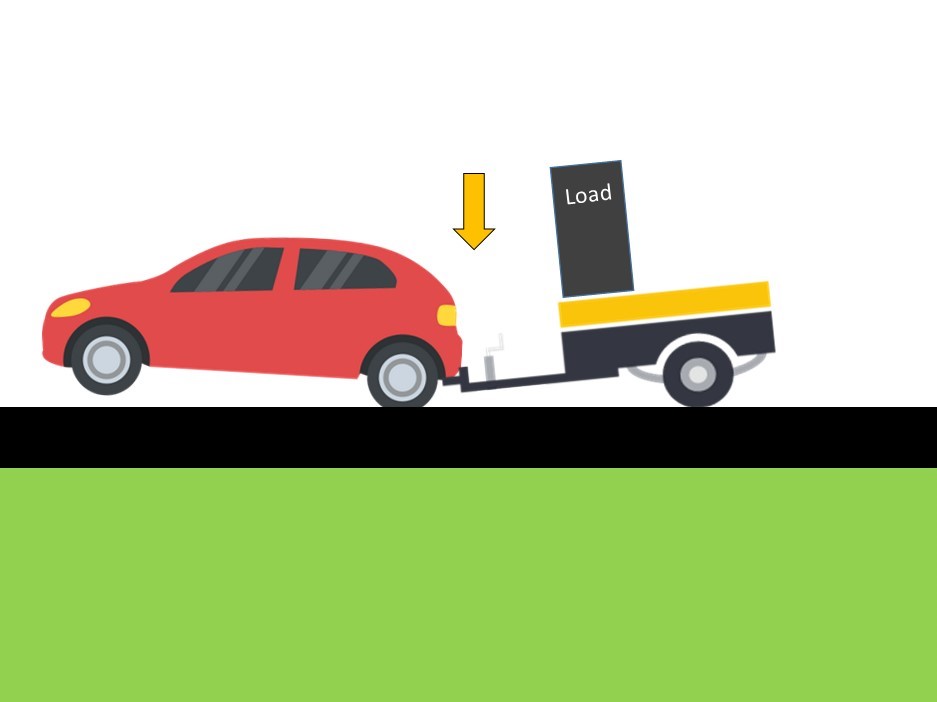Trailer Overview
When driving with a trailer, there are a few things to keep in mind. Review the certificate of registration for the car which will gives details of the weight of trailer which the car is allowed to tow.
| Trailer Type | License | Weight |
|---|---|---|
| Light trailer | B driver's license. | Trailer weight less than 750 kg in total. Trailer whose total weight does not exceed the car's kerb weight, with the combined total weight not exceeding 3.5 tons |
| Heavy trailer | BE license | Trailer weight more then => 750 kg Trailer whose total weight exceed the car's kerb weight. The combined total weight not exceeds 3.5 tons |
The majority of cases it is the towing car's kerb weight which determines whether a trailer is heavy or light. As a result, depending on the brand of vehicle being used, the same trailer may be light at times and heavy at other times.
You'll need to view both the towing vehicle's and the trailer's registration certificates to establish if a trailer is light or heavy.
Definitions of kerb weight, gross weight, total weight and maximum load
| Concept | Description |
|---|---|
| Unlaiden weight | The weight of a vehicle while it is not carrying people, commodities, or other objects. (It includes the driver 75kg) |
| Car kerb weight | The kerb weight of a vehicle is its total weight, including a full tank of gas and all standard equipment. The weight of any passengers, goods, or extra equipment is not included. Unladen weight = kerb weight |
| Car total weight | Gross total weight is when the car is loaded with passengers and luggage Unladen weight + maximum load = total weight |
| Trailer kerb weight | The weight of the trailer when unloaded Unladen weight = kerb weight |
| Trailer total weight | The weight of the trailer when loaded with items kerb weight + maximum load = total weight |
| Maximum load | The car or trailers maximum load permitted as indicated on the certificate |
| Gross weight | The car or trailer total weight at a certain point in time. The weight of the empty vehicle plus the weight of the maximum payload that the vehicle was designed to carry. Its basically the vehicle's maximum overall safe weight. |
Car and towing registration (Weight permitted)
 The following images indicates
The following images indicates
- The unladen weight of the car (G)
- Max load of the car (F.6)
- Total permitted weight (F.1)
- Tax weight of the car (F.7)
- Total permitted weight of the trailer (O.1)
- Total permitted weight allowed for the drivers license B (O.3) (This sometime can be higher or lower)
Examples of trailers and their weight
Do the following examples have a light or heavy trailer?
Example 1:
 |
|
| Kerb weight: 350 kg Total weight: 650 kg Max load: 1150 kg | |
| Total weight = 650 kg | The trailer's overall weight is less then 750 kg, No calculations is required. The total weight = 650 <= 750 kg |
Thus the trailer is light
Example 2:
 |
|
| Kerb weight: 350 kg Total weight: 800 kg Max load: 1150 kg | |
| Total weight = 800 kg | The trailer's overall weight is less more then 750 kg, Calculations is required. But because there is no car indicated there is not enough data to make the calculation The total weight = 800 >= 750 kg The total combined weight = Car total weight + 800 <= 3500 kg ? |
Thus not enough data to answer
Example 3:
 |
 |
|
| Kerb weight: 1290 kg Total weight: 1700 kg | Kerb weight: 350 kg Total weight: 1500 kg Max load: 1150 kg | |
| 1700 kg + | 1500 kg | Because the trailer's overall weight exceeds 750 kg, calculations must be made. The combined total weight = 3200 kg <= 3500 kg |
Thus the trailer is light
Example 4:
 |
 |
|
| Total weight: 2100 kg Kerb weight: 2000 kg | Total weight: 1400 kg Kerb weight: 350 kg | |
| 2100 kg + | 1400 kg | Because the trailer's overall weight exceeds 750 kg, calculations must be made. 3500 kg <= 3500 kg |
Thus the trailer is light
Example 5:
 |
 |
|
| Total weight: 2500 kg Kerb weight: 2000 kg | Total weight: 1300 kg Kerb weight: 350 kg | |
| 2500 kg + | 1300 kg | Because the trailer's overall weight exceeds 750 kg, calculations must be made. 3800 kg >= 3500 kg |
Thus the trailer is heavy
Example 6:
Consider the following registration paper, you are towing a trailer with total weight of 600kg (Are you permitted to tow the trailer)

| Total weight: 1420 kg Kerb weight: 1120 kg | Total weight: 600 kg | |
| 1420 kg + | 600 kg | Because the trailer's overall weight is less then 750 kg, no calculations is necessary. You can also see in the registration paper that you can tow a trailer with eight <= 1300 kg |
Thus the trailer is light
Ball pressure
The ball pressure is the force exerted on the car's towbar by the trailer's connection. In most cases, the ball pressure should be between 30 and 100 kg. Ball pressure can have a negative effect on the cars handling and safety if the pressure surpace 100 kg as it will start to lift the car wheels up
Low ball pressure
- Makes the vehicle combination unstable.
- Increases the risk of overturning.
- Reduces the traction on rear wheel drive cars.

High ball pressure
- The car's dipped headlights can become dazzling.
- Reduces the traction on front wheel drive cars.
- Increases the wear on the rear tyres.

Additional Considerations for towing
- A service brake is required on trailers with a total weight exceeding 750 kg.
- On most smaller trailers a pusher brake is used. When the car is towing the trailer and the car brakes, the trailer exerts forward pressure on the towbar which then apply brakes automatically.
- A parking brake is required on trailers with a kerb weight over 400 kg
- You should inspect your brakes on a regular basis.
- Apply the parking brake and make an attempt to drive away. You'll be able to tell if the brake is working or not.
- If you plan on towing a caravan, you may need to install additional exterior mirrors.
